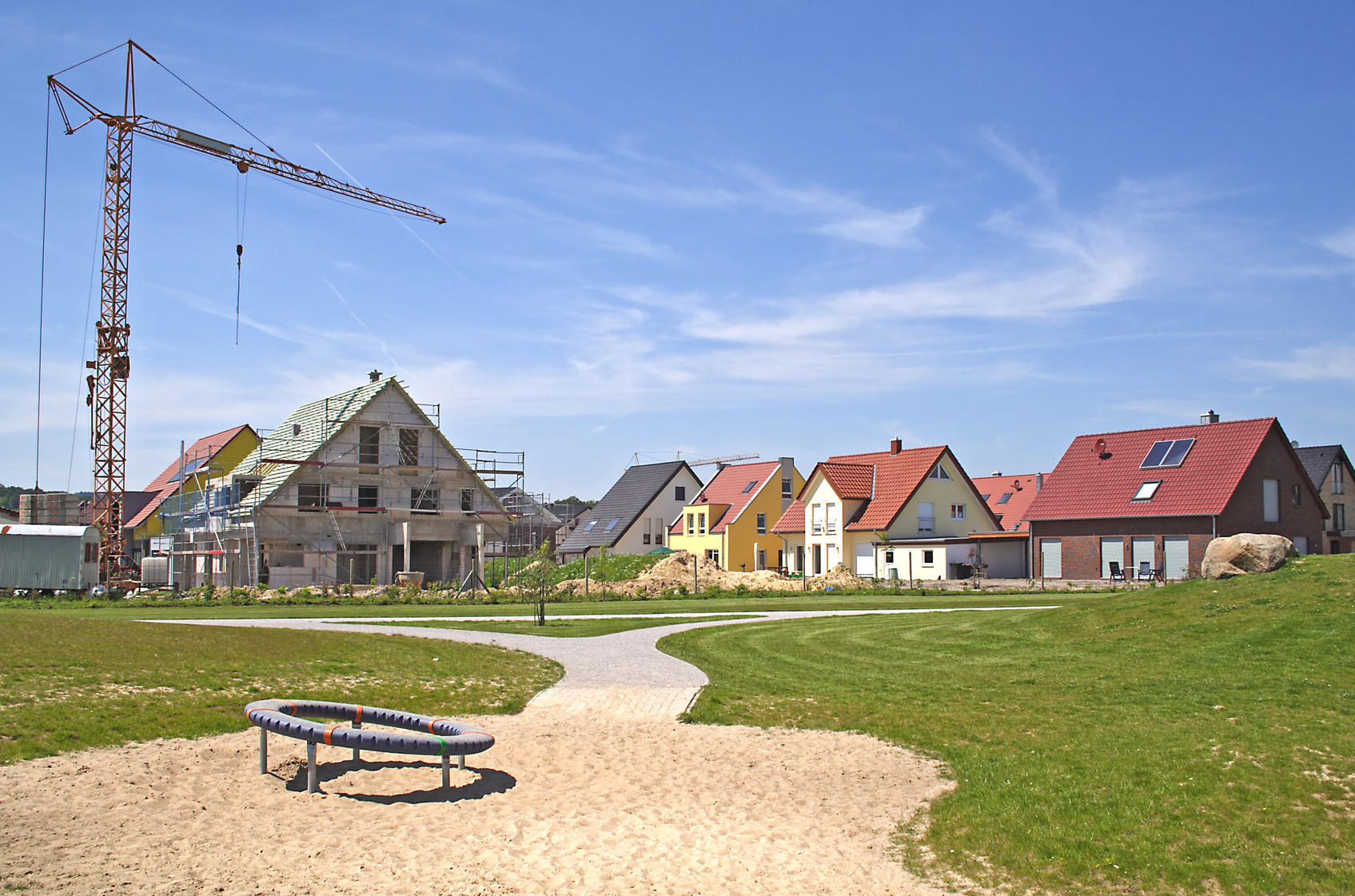Rethinking land use
UBA launches pilot project on tradable land use certificates

Newly-built quarter away from any infrastructure: bad for inner cities and the landscape
Source: Kaarsten / Fotolia.com
Land use continues to be an unsolved environmental problem in Germany. Why? Businesses and residents are leaving urban areas and new shopping centres and single-family settlements are mushrooming on greenfield sites. The consequence – especially in many small and medium-sized towns – is urban sprawl, land consumption as well as an inner-city vacancy rate and depreciation. Many experts say that a system of trade in land area certificates might prove to be a countermeasure. Local authorities would be allocated land-use rights in the form of free permits. These permits are required to designate new areas outside of cities as building land. This procedure will pre-set a limit on the outlying land areas that is available as building land. A national pilot project called Planspiel Flächenhandel was launched on 16 September to explore a permit system for land use. Jochen Flasbarth, President of the Federal Environment Agency (UBA), says, “We want to experiment and gather experience in the trading of land use permits with local authorities throughout the country. The objective is clear: we want to reduce land consumption.” A limitation of building on land in greenfield areas is also expected to have a positive effect on inner cities and city centres, making them more attractive again for the people who live there and for businesses and trade. An additional benefit is that the permits can act as a source of revenue to be used to absorb the cost of brownfield redevelopment.

